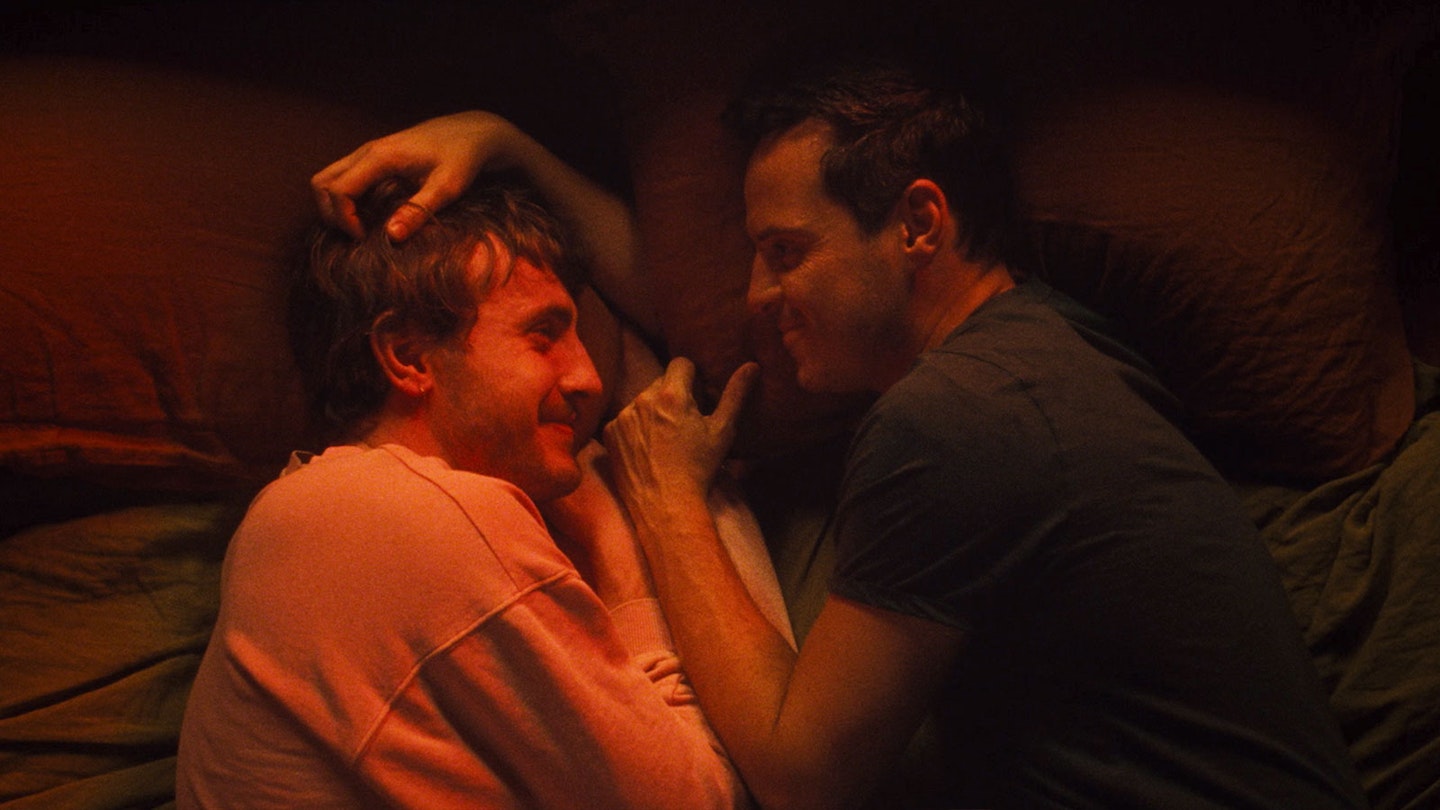Warning: this piece contains spoilers for All Of Us Strangers.
If you're reading this through a haze of tears, you're not alone. Even mentioning All of Us Strangers is enough to make a person sob as if they’re watching Andrew Haigh's masterpiece again for the very first time. And that's rather fitting given the curious way this film plays with chronology. Whether it's the grief or queer trauma or a heady mix of the two that resonates with you most, All of Us Strangers is a story that will always be on your mind in some way, the kind that shifts how you perceive the world. But how you even perceive the film itself can also shift depending on different factors.
One thing that can be agreed on is that this loose yet touching adaptation of Strangers, a Japanese novel by Taichi Yamada, is essentially two love stories in one. At the centre is Adam (Andrew Scott), a forty-something gay scriptwriter who lives alone in an — almost — empty high-rise building in London. Haunted by the past, Adam revisits his childhood home only to discover the past has somehow come to life when his parents (played by Jamie Bell and Claire Foy) return exactly as they were before they died when Adam was just twelve years old.
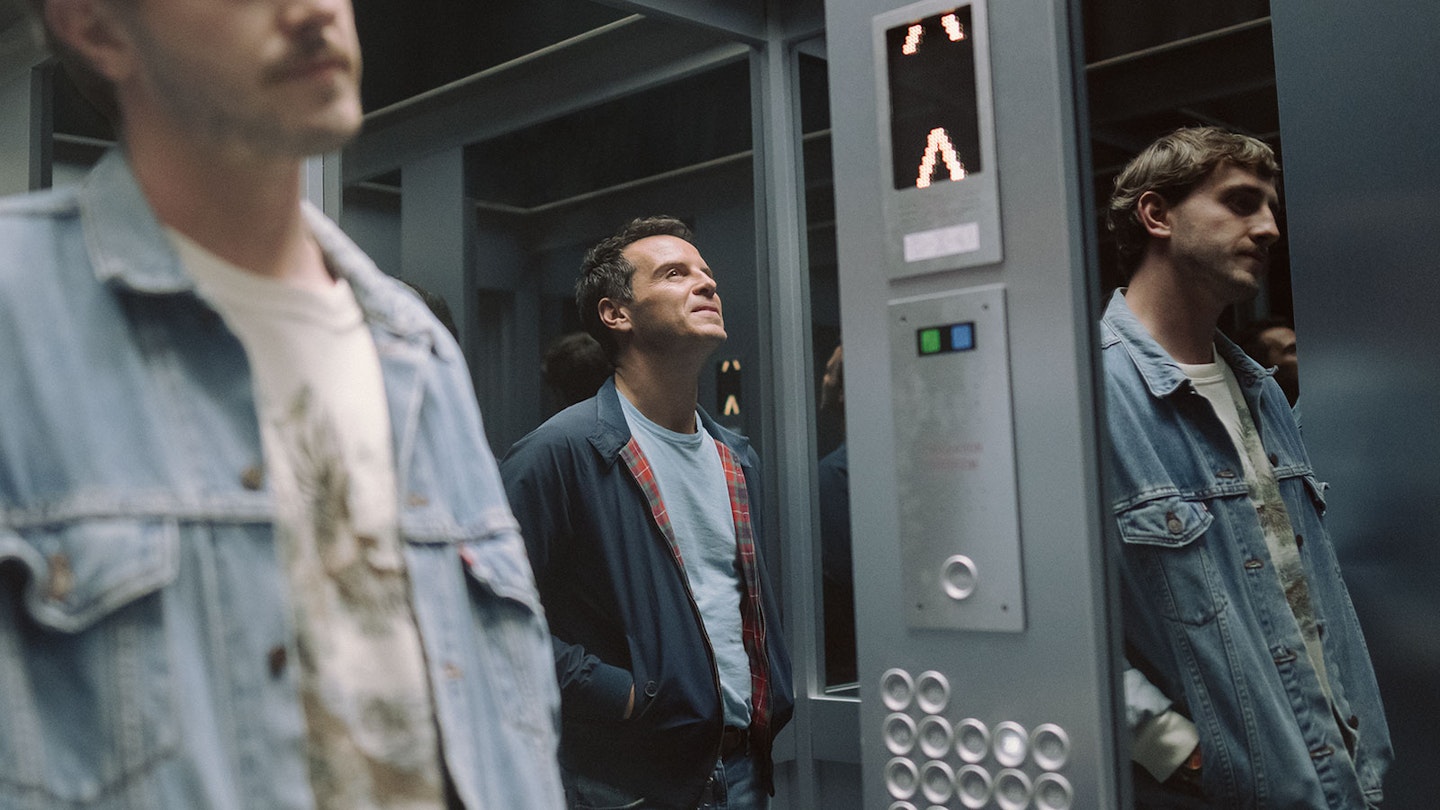
As he reunites with these time-displaced figures, filling them in on decades lost, Adam also forms a new connection with a younger man named Harry (Paul Mescal). This intergenerational romance helps Adam heal after years of shame and worry. But then, in one gut-wrenching twist, it turns out that this second love story is a ghost story too, much like the first. Yet a great deal is still left unexplained.
What happens in All Of Us Strangers?
Adam lives alone in a largely deserted London tower block, until one evening, after a fire drill, a drunken Harry knocks upon his door. Terrified of intimacy, Adam rejects Harry the first time they meet, but everything changes once Adam starts visiting his long deceased parents in their old Sussex home. As his reality changes to accept the possibility of their return, Adam also changes his outlook on life, opening up to Harry's advances. The pair have sex, although Adam keeps the younger man at a distance still to start with.
In his next ghostly visit, Adam decides to come out to his mother, something he never had the chance to do before her death. She accepts him, although it's not easy for her because she's still part of the era where AIDS and queerness were inextricably linked in shameful, hateful ways. Upon returning home, Adam learns that Harry also feels distant from his family, an experience that unfortunately connects queer people even now across generations. Adam confronts this feeling head-on when he talks to his father next, who tearfully apologises for not stepping in and helping Adam deal with the bullying he faced for being gay at school.
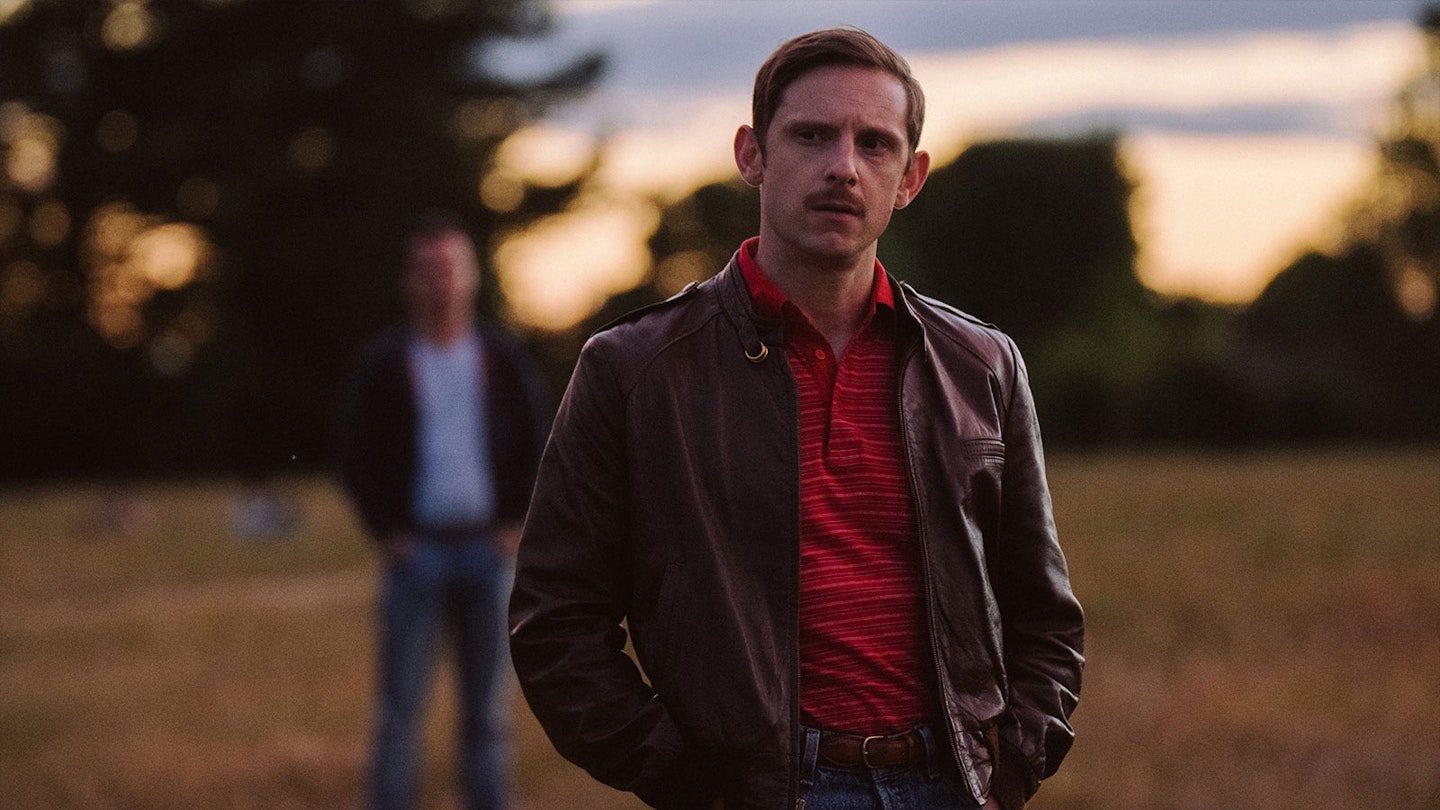
Intimacy doesn't come easily for Adam, but through Harry's love and his parents' acceptance, happiness begins to take hold. That is, until everything unravels after Adam suffers a ketamine meltdown in a club with Harry, screaming out for his parents. Upon blacking out, Adam wakes up in his childhood house at Christmas where he puts on his old pyjamas (which are far too small now) and gets into his parents’ bed. While his father sleeps beside them, Adam and his mother share memories of their earlier lives and what happened after the accident too, but they're soon interrupted by Harry, who strangely appears where Adam's father was lying just moments before. Time bends again after that when Adam wakes up on a train and chases Harry, who's running away just out of reach. And with that, Adam awakens yet again, this time at home, with Harry explaining that he took them both back after the ketamine trip went bad.
Unsettled by what's been happening, Adam tells Harry more details about the accident that took his parents, revealing that his father died instantly while his mother lingered on for several days. This leads to Adam admitting the truth about his parents' return, that they're back now in some strange, otherworldly capacity. A troubled Harry agrees to visit Adam’s childhood home with him to check this out for himself. Upon arriving, Harry catches a glimpse of the ghosts through a backdoor window — and they see him too. Harry denies it, though, and flees, which leads to one final meeting between Adam and his parents at a diner they used to frequent back when they were all still alive together. There, they explain that Adam needs to let them go in order to move on and be happy. In turn, Adam helps them move on by telling them that they both died instantly in the accident, reassuring them that the fears that worried them since returning have been unfounded. In their last moments on this plane of existence, Adam's parents reaffirm their love for their son and then they vanish into the hereafter.
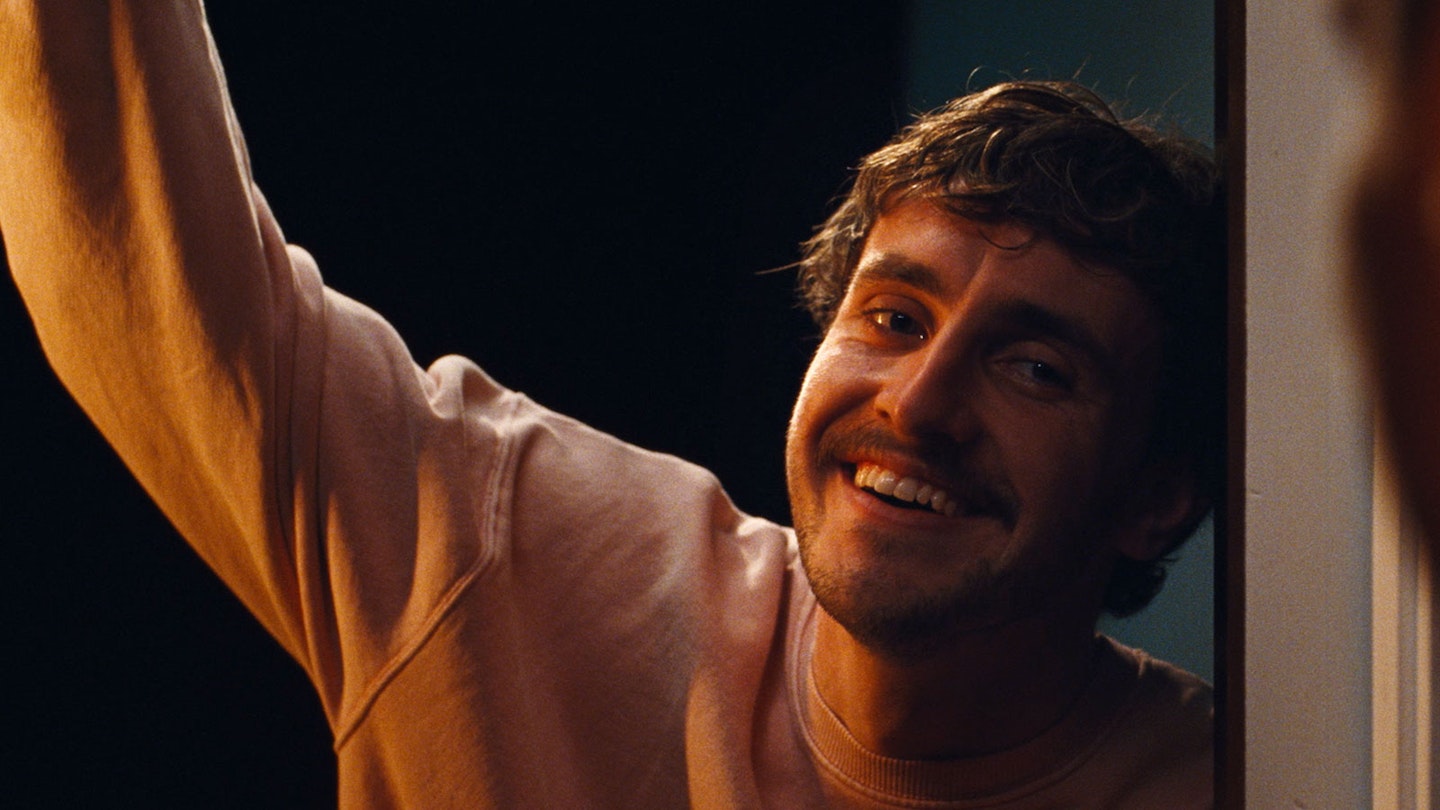
As if that goodbye at the diner wasn't devastating enough, Adam heads to Harry's flat after where he discovers Harry's dead body beside the bottle of whiskey he was carrying that first night at Adam's door, when he wasn't allowed in. Harry reappears to Adam wearing the same pink jumper from their very first — and perhaps only — encounter (more on that shortly). Together, they head to Adam's room and cuddle each other on his bed. A light shines between them, growing brighter and brighter as they recede into the darkness where more stars twinkle. "The Power of Love" by Frankie Goes To Hollywood plays over the scene and through the credits like a literal "force from above" while the tears inevitably pour one last time.
What does that final shot mean?
When Harry realises he's dead, the film could have easily ended on a tragic note, especially when he came to realise that no one found his body for quite some time, including his parents. It is a heartbreaking scene, that much can't be denied.
“I think that's the tragedy of that kind of his loneliness,” explains Haigh. “That he was in that room and he was dead and no one found him, including his parents. They didn't seem to work out where he was. And that to me is heartbreaking and does speak a lot to the film — that love is about making sure that you're caring for someone else and knowing when they need you."
Harry was found, ultimately, and by someone who knows him better and loves him more than anyone else ever could, including his family. Adam and Harry are family now, and their connection in the film's final moments is palpable beyond just a physical sense. As darkness comes and the camera pans out, the light that grows between them becomes one in a constellation of many in the night sky, a cosmic force that joins other souls seeking comfort. There's no more fear. There's only peace now in each other's arms.
Whatever you make of Haigh's mercurial grip on time and space, it's the emotions the film provokes that will resonate still in years to come.
Harry is able to move on because of Adam's love, much like how Adam was able to move on emotionally from his own trauma thanks to Harry. The love they share is strong enough to bridge the gap between life and death. It strengthens them and protects them both against the void. Without connections like this, we're just left adrift in the darkness, strangers lost to pain and loneliness. And that's true whether Adam's relationship with Harry was physical or spiritual, real or imagined.
So, Harry was dead all along?
No, not exactly. But Harry was certainly dead after we first met him in Adam's doorway. Reeling from that rejection, Harry returned to his flat and lost his life that very same evening. "I was so scared that night. I just needed to not be alone," Harry's ghost recalls at the end, which seems to confirm that his death is specifically connected to that initial encounter. It's no coincidence that he's wearing the same pink sweatshirt in death that we saw on him outside Adam's flat. On top of that, the empty bottle of whiskey next to his corpse is the same one Harry offered to Adam that fateful night. Plus, it's clearly been a while since Harry died, if the body's decomposition is anything to go by.
Going back even further, there are also other clues to support this that only become apparent on a rewatch. Why did we never see Harry's flat until those final moments? Why could Harry see Adam's parents through that window, and even more importantly, how could they see him back? These elements only make sense once you know the story's outcome, something which Haigh had to keep in mind knowing that Harry was already dead from so early on.
“There are things that you're doing, writing-wise, thinking, ‘Okay, how am I going to make it clear that when you watch it again, you're like, “Oh yeah, I see, that makes sense.”’ How we see him on the first night, when he goes up and is at the door and wants to be let in. People actually have different opinions on this, but to me, he is alive at that point. To me, that is the night that he dies.”
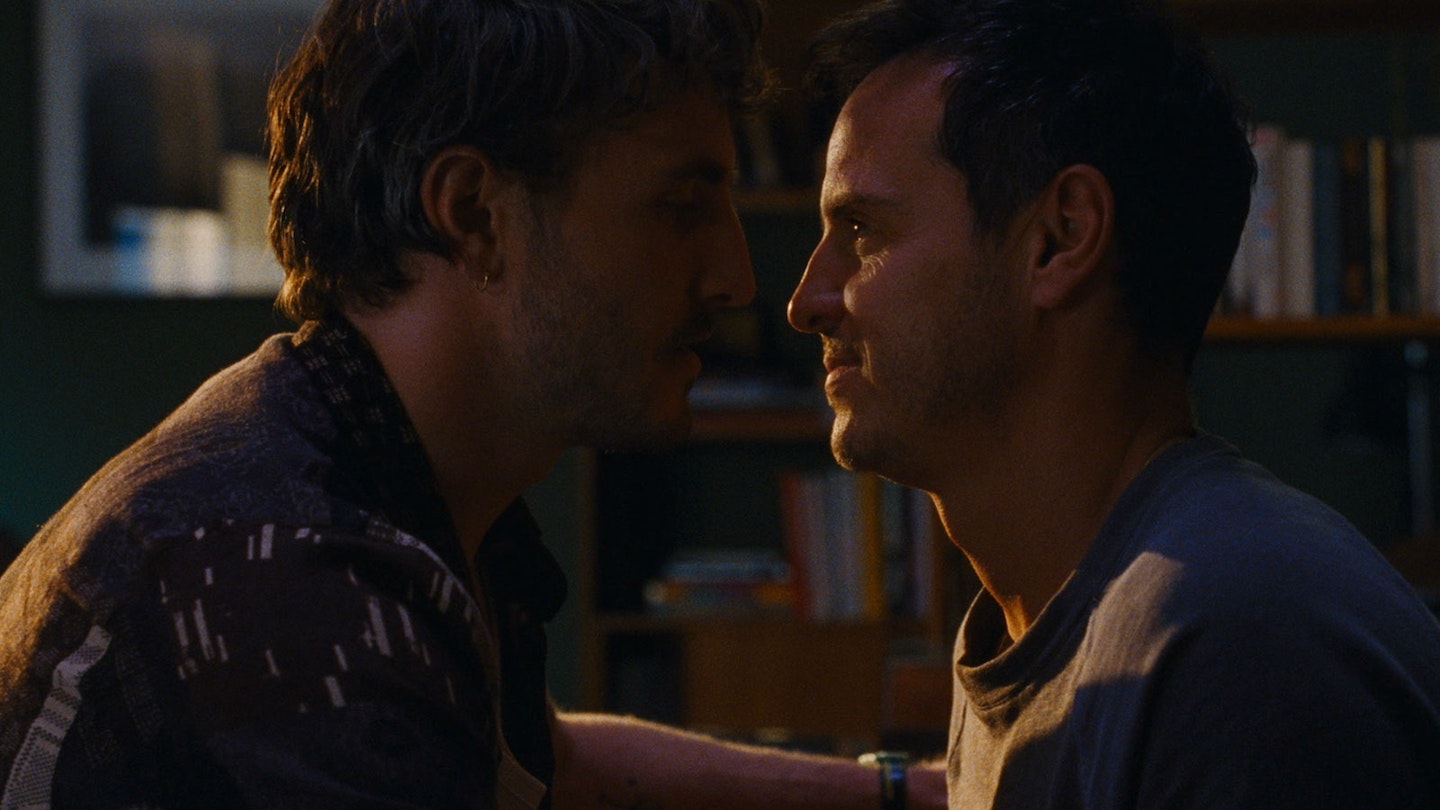
Was Adam dead all along as well?
If every character we meet in All of Us Strangers is dead, is it possible that Adam himself might also be no longer with the living? The bizarrely empty apartment building he resides in — a seeming first for London — could easily be the physical manifestation of purgatory, which would make that final scene even more poignant as he and Harry ascend to the afterlife after finding love with each other. Of course, that begs the question of how Adam might have died. Given the script's preoccupation with shame and how it's held him back in life, internalised homophobia could have perhaps led to Adam dying by suicide, thereby connecting his demise to the suffering Harry endured in the end as well. That's particularly bleak though, and it's purely speculative for that matter too.
The closest we might get to a possible answer with this reading could be directly tied to the building itself. At the very start of the film, a fire alarm goes off, so it's been suggested that a fire may have actually killed Adam that same day, trapping his spirit in a kind of limbo along with Harry. It would certainly explain why the building is practically empty throughout, not to mention the strange, ethereal atmosphere of that location.
“Someone asked me the other day if they'd all died when the building burnt down," recalls Haigh. "They said, ‘Oh, did the building burn down at the beginning or the end?’ And I'm like, 'Building burned down?' But it's because there's a fire alarm in the beginning, and I think someone thought that maybe when he went out and came back in again, they both burned to death in the apartment and the rest of it is some kind of purgatory. I kind of like that idea, actually. I know lots of people think that maybe Adam is not alive and I can understand why they might think that. The opening shot is a strange shot and there are sometimes times that I think that maybe he's not alive as well.”
Are the ghosts even real?
All of Us Strangers is two ghost stories in one, yet it's also possible that these supernatural visits are actually just a product of Adam's imagination. The film establishes early on that he's writing a script about his parents, looking to bridge the past and the present, so what if everything we experience is just imagined as part of this project? We don't actually see Adam's parents until after he opens a new document and types the words "EXT. SUBURBAN HOUSE 1987," which leads to that first visit back to his childhood home. The ghostly version of Harry we meet after the lift scene is also introduced via a shot of Adam at his laptop, although the writing itself is kept hidden from view this time around. Yet this doesn't quite explain why Adam seems unable to tell that Harry is a ghost, even though he instinctively understood that this was true of his parents. Whether these spirits are ghosts or imaginary figures, the truth that connects either reading is that Adam willed them into being through his loneliness and desperate yearning for connection. It's not like Adam is the most reliable narrator, either. The ketamine sequence in particular is a testament to that, so even his personal viewpoint isn't grounded in an objective, factual reality.
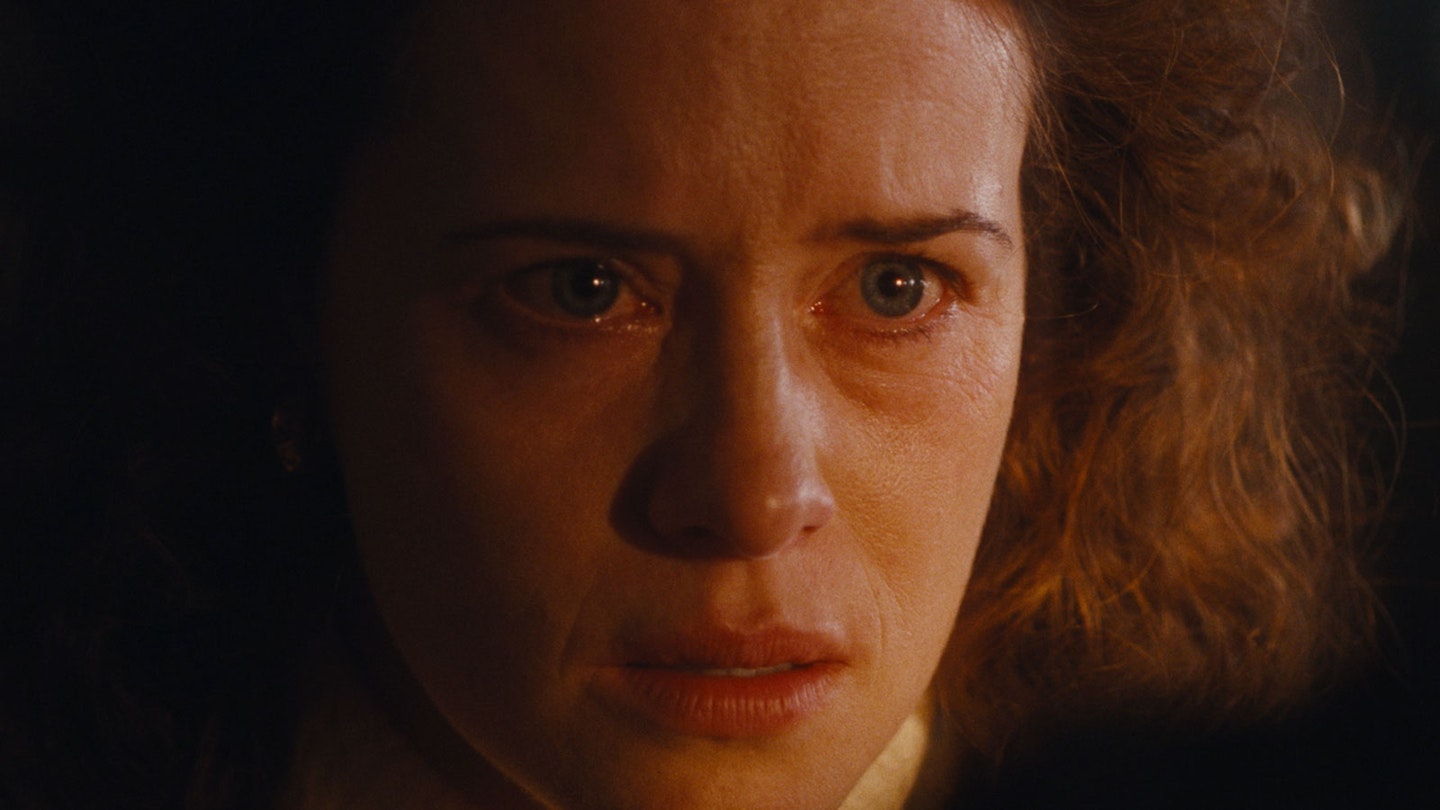
“The basis of the film is that out of Adam's longing, he has brought whatever it is into existence,” says Haigh. “It could all be in his head or you could read it as ghosts. I let the audience come up with how logical they want to be or if they want it to actually be that these three people are ghosts. Or that it all exists as some kind of manifestation of Adam's longing. To me, the latter is sort of my understanding of it — that out of a desire for connection and understanding, everything has been brought into existence.”
In short, the film is what you make of it. In that respect, the scene where Adam asks his mother if her return is real speaks more to the essence of Haigh's writing than even the ending does, despite all the discussion it has inspired. Her response, "Does it feel real?", is all that truly matters. Whatever you make of Haigh's mercurial grip on time and space, it's the emotions the film provokes that will resonate still in years to come. And by "emotions", we mean endless sobbing.
Why did Haigh choose "The Power of Love" to end the film?
Narratively speaking, it made sense for Harry to request "The Power of Love" at the end. It's this very song that blared from the TV (via an old Top Of The Pops performance) when he first knocked on Adam's door. Harry even quoted the lyrics before Adam turned him away, saying "There’s vampires outside my door". Those "vampires" are the demons that plague Harry, of course, the ones that drove him to drink and drugs until he died because of them. It's no coincidence that Frankie Goes to Hollywood, one of the only out gay acts in the 80s, were chosen to soundtrack this moment. Throughout All of Us Strangers, Adam has been trying to let go of the suffering he endured during that decade specifically, learning to finally accept the literal power of love without fear of pain or dying due to AIDS. It's a song that would have likely meant a great deal to Adam in the 80s, just as it did for Haigh, who told Empire, “I bought that Frankie Goes to Hollywood album. I love the Housemartins, Erasure — they were all really important like bands to me growing up. They're all essentially quite melancholic pop songs, those songs that I've used. With something that's bubbling up underneath, which is a little bit more sort of unsettling and upsetting.”
So in this moment, the record takes on a new meaning for them both, healing the gay kids inside them that didn't feel worthy of that love when they were young.
What happens in Taichi Yamada's original novel?
In some ways, Haigh's All of Us Strangers is quite similar to the source material that inspired it, a novel named "Strangers" that Japanese author Taichi Yamada released back in 1987. The pair share a number of familiar beats and story conceits, including aspects of the film's biggest twist, yet they're explored in wildly different ways, as befitting of a dream-like narrative such as this one that plays with time and space so loosely.
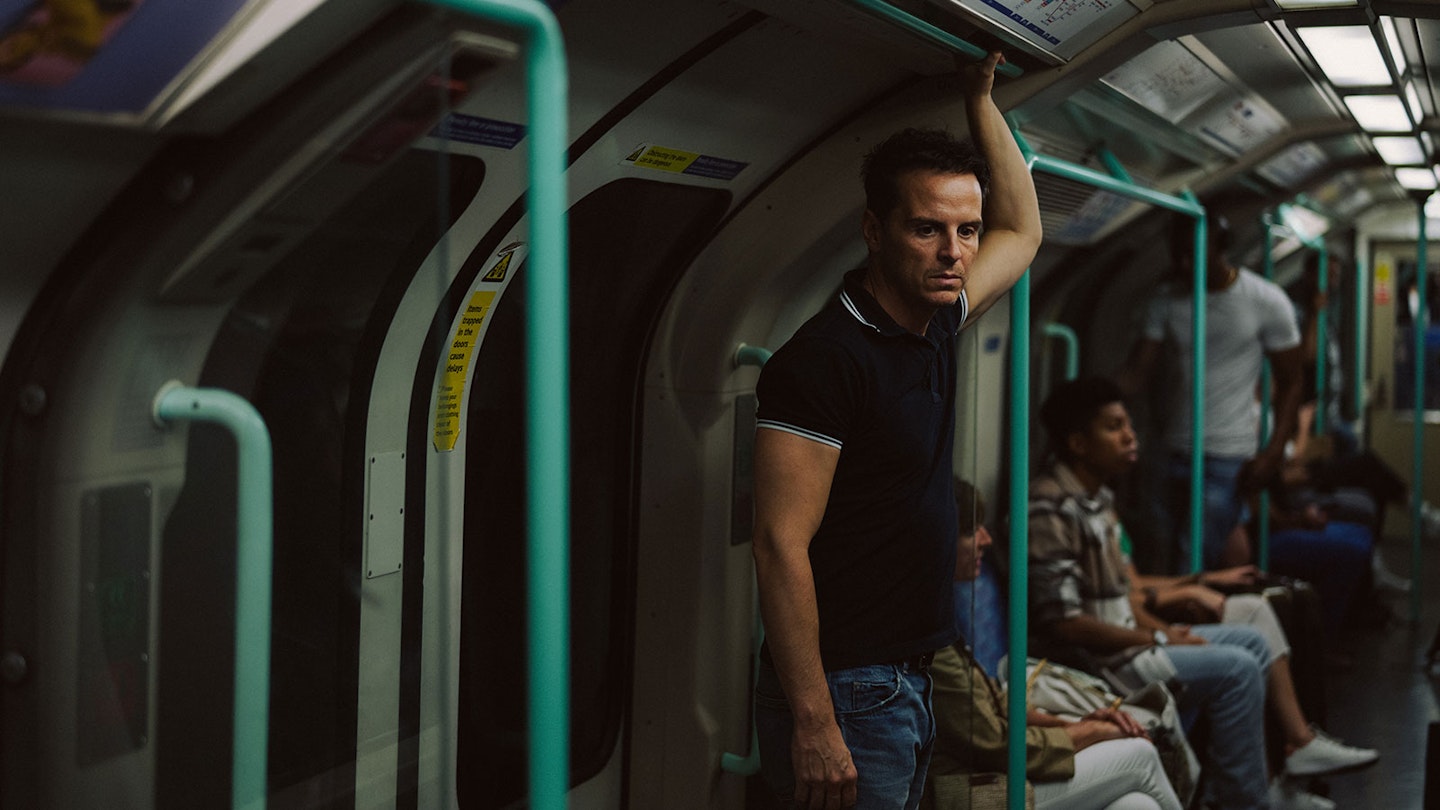
The original narrator is also a scriptwriter in his mid-forties who lost his parents at the age of 12, but Hideo Harada is recently divorced, so already, his loneliness is very different to the one Adam's endured for so long in Haigh's "remake". One night, a woman who lives in the same building shows up at Hideo's Tokyo flat, and just like Harry, she too is turned away. Following this encounter, Hideo returns to his old neighbourhood where he meets a couple who look remarkably like the parents he lost right before they died. Time and time again, he meets these pseudo-parents who go on to treat him like family, comforting Hideo who's desperate to make up for lost time in his childhood.
Meanwhile, a relationship develops between Hideo and Kei, the female tenant who knocked on his door earlier. It's through this connection, and in particular Kei's observations, that we realise Hideo's life force is being sapped away each time he visits the couple who resemble his parents. Or is it something else new in his life that's ageing him so rapidly? A final twist concerning Kei shifts the film into horror, but Haigh wisely avoids that cliché, unlike Obayashi Nobuhiko's previous movie adaptation from 1988, titled The Discarnates. Instead, the new Kei, aka. Harry is revealed to have been dead all along, which speaks more to the queer romance and heartbreak that takes precedence over supernatural scares in All of Us Strangers, because that's the story which is more personal to Haigh.
